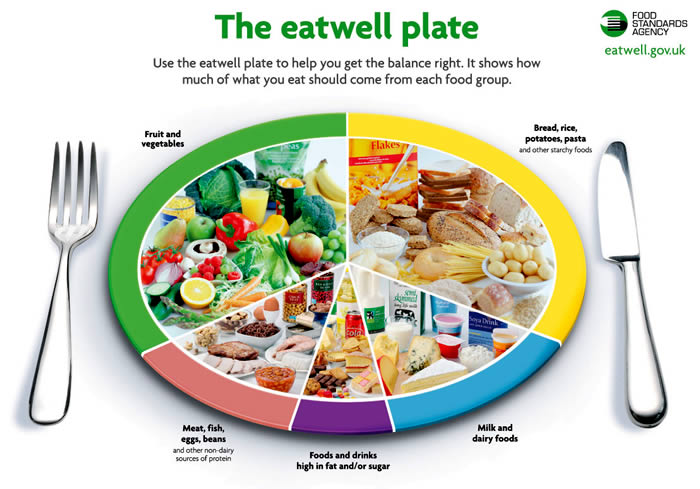My first blog for FRN is going to be on basic nutrition. I am sure some of you are fully aware of what the requirements are for a healthy diet, but I would like to start here for those who don’t, or might need a recap.
Optimal nutrition has been proven to be the foundation for general good health. It can maintain a healthy body weight, enhance general wellbeing and reduce the risk of a various diseases. You need to put in the groundwork before you make any specific nutritional goals for your training or matches, so let’s get started.
Basal Metabolic Rate
Basal Metabolic Rate (BMR) is the amount of energy expended at rest in order to keep vital organs in working order. The Schofield equation is commonly used by dieticians to estimate your BMR. Give it a go, as this will help in my future blogs about weight gain or loss.
Males:
10 – 17 years BMR = 17.7 x W + 657 SEE = 105
18 – 29 years BMR = 15.1 x W + 692 SEE = 156
30 – 59 years BMR = 11.5 x W + 873 SEE = 167
Females:
10 – 17 years BMR = 13.4 x W + 692 SEE = 112
18 – 29 years BMR = 14.8 x W + 487 SEE = 120
30 – 59 years BMR = 8.3 x W + 846 SEE = 112
Key: W = Body weight in kilograms
SEE = Standard error of estimation
When you have worked this out you now need to refer to the Harris Benedict Equation, which then implements an activity factor to your BMR in order to establish your total daily energy expenditure.
1. Sedentary (very little or no exercise at all) = BMR x 1.2
2. Lightly active (light exercise/sports 1-3 days/week) = BMR x 1.375
3. If you are moderately active (moderate exercise/sports 3-5 days/week) = BMR x 1.55
4. If you are very active (hard exercise/sports 6-7 days a week) = BMR x 1.725
5. If you are extremely active (very intense exercise/sports & physical job or 2x training) = BMR x 1.9
You should now you have your BMR, so you know what your daily calorie intake should be. Now you need to learn what this should be made up of.
The Food Standard Agency’s Eatwell Plate focuses on the five food groups, starchy foods, fruit and vegetables, milk and dairy foods, protein rich foods and non-dairy sources of protein and finally high fat and sugar foods. It is a simple diagram of how different foods contribute towards a healthy balanced diet.

Carbohydrates
All athlete’s macronutrient intakes should be Carbohydrate (CHO) 55-60%, Protein 12-15% and Fat 20-25%. The ACSM (2009) recommend a CHO intake for athletes to range from 6-10g/kg of body weight (BW) (55-60%), however athletes who are training at high levels of physical activity need a greater amount of CHO and protein. This should be refined to consider individual differences, such as, specific training needs for their sport and any feedback from their performance.
CHO is the highest contribution to the diet because it remains the most important energy source for any high intensity exercise. CHO replenishes muscle glycogen stores between training and stimulates glucose oxidation, making it vital for athletes to consume adequate amounts.
Protein
Protein is made up of chemical units called amino acids (AA) which are used to build and repair muscles. The current recommended intake for protein by the ACSM is 0.8g per kg of BW, but athletes who wish to gain muscle (hypertrophy), may benefit from increasing their protein intake. Recommendations for endurance athletes are 1.2-1.4g/kg of BW and strength athletes range from 1.6-1.7g/kg of BW. This said, recommendations are not straightforward and depend upon numerous factors such as timing in relation to other nutrients, and the type of protein. Protein has been considered a vital nutrient in athletic performance for many years, making specific diets of protein and supplements very successful for athletes looking to enhance their performance.
Fat
Fats are important for many metabolic processes, such as energy production. Although including good sources of essential fatty acids, such as fish, oils, nuts and seeds, excess fat should be avoided and it is vital to minimise intake of saturated fatty acids and cholesterol. Eating a low fat meal before and after training competition is good practise as fat takes a long time to digest.
Water
Water is the most important nutrient and has various vital functions including regulating body temperature, lubricating joints and transporting nutrients and waste throughout the body. Athletes who lose as little as two percent of their body weight through sweating affect their athletic performance.
It is important to focus on hydration in three steps, before, during and after exercise.
Before exercise it is recommended to drink about 500ml, 2 hours before exercise and 250ml about 10 minutes before exercise. During (if possible) drink 250ml every 10 minutes; this depends on the duration and intensity of the exercise. If you are active for longer than an hour a sports drink usually containing CHO and electrolytes is necessary. Finally, after exercise it is common practice to weigh yourself before and after exercise and replace fluid losses. For example, every 1lb lost replenish with around 600ml of water. Many studies have shown the benefit of consuming CHO and protein within 2 hours after exercise to replenish glycogen stores.
Micronutrients
Vitamins and minerals have a variety of functions in the human body. Athletes would often need more because exercise increases their metabolism, meaning they utilise more micronutrients. This means many athletes need more of each micronutrient simply to keep up with tissue maintenance and repair. However, a healthy balanced meal, as discussed, is sufficient to provide the body with these.
Contact Me
I hope my first blog has covered all aspects of basic nutrition. This is the knowledge every athlete needs before they start to pin point specific performance nutrition goals. My aim is to build on the information I give you in each blog. Please feel free contact me with any questions you may have by emailing info@findrugbynow.com with “Ask Alison” in the subject line.








 When most people hear the word “Peloton” they think of an expensive black bike with shiny red buttons and that controversial commercial where the husband gifted his wife a Peloton for Christmas.
When most people hear the word “Peloton” they think of an expensive black bike with shiny red buttons and that controversial commercial where the husband gifted his wife a Peloton for Christmas. If the app interests you, Peloton is currently offering a 30 day FREE TRIAL, so why not give it a try? Check it out
If the app interests you, Peloton is currently offering a 30 day FREE TRIAL, so why not give it a try? Check it out 

 This article would not be complete, however, if we did not acknowledge some of the delivery issues that have been plaguing Peloton over the last year. Most of the delivery issues seem to affect U.S. deliveries, however, the UK deliveries have been affected as well.
This article would not be complete, however, if we did not acknowledge some of the delivery issues that have been plaguing Peloton over the last year. Most of the delivery issues seem to affect U.S. deliveries, however, the UK deliveries have been affected as well.







